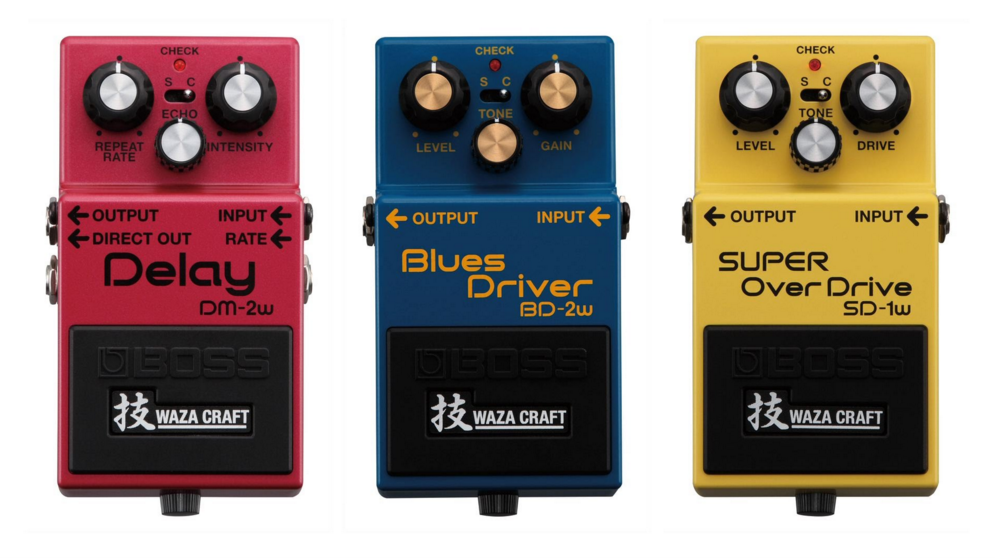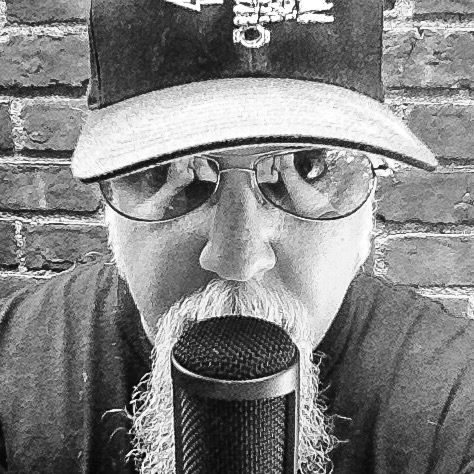Review: Boss Waza Craft BD-2W, DM-2W, and SD-1W Pedals — Video

PLATINUM AWARD
There are many very good reasons why Boss pedals have remained mainstays of countless pro guitarists’ pedalboards.
Boss compact pedals are built like tanks, exceptionally durable and reliable, and readily available from most retailers should one ever need to be replaced, plus they sound pretty damn good. These are the qualities that have made Boss compact pedals some of the most popular products for pro and aspiring guitarists alike for nearly four decades.
However, the boutique pedal phenomenon has bred a new variety of discriminating tone connoisseur (a.k.a. the cork sniffer) that demands a certain level of refinement that few mass-produced products can match.
Then there is the cottage industry of techs who make good money modifying and customizing Boss pedals to improve and even hot-rod those effects’ performance. In their own pursuit of tonal perfection, Boss has introduced its new Waza Craft series compact pedals that offer refined circuits, all-analog components, and new customized features to offer performance that goes beyond their usual standards of excellence.
FEATURES
So what’s a Waza? It’s not what a sushi chef yells when he wants you to buy him a Bud, nor is it a rogue syndicate of the Yakuza. It’s a word that has no direct English translation, but rather has many meanings, including “skill” and “technique.” All you need to know is that the Waza Craft series currently consists of three impressive pedals—the BD-2W Blues Driver, DM-2W Delay, and SD-1W Super Overdrive.
While the standard BD-2 and SD-1 pedals have been mainstays of the Boss line for a few decades now (since 1995 and 1981, respectively), the biggest news is the return of the coveted DM-2 analog delay pedal, which was produced only between 1981 and 1984. The BD-2W and SD-1W also look almost identical to their standard counterparts, having the same triangular configuration of level, tone, and drive/gain controls and mono input and output jacks. The DM-2W also has the same controls as its predecessor (repeat rate, echo, and intensity), but it provides a ¼-inch rate jack for controlling delay time with an optional expression pedal and a direct output in addition to the input and output jacks of the original version.
A mini toggle switch located below the Check LED is the secret weapon that unleashes the Waza Craft pedals’ inscrutable magic. In the “S” (standard) position the pedal performs like the regular, classic version of the pedal (albeit with a few sonic improvements), while the “C” position engages a customized circuit. The “C” mode increases sustain and body on the BD-2W, boosts gain and expands tonal range on the SD-1W, and increase the maximum delay time of the DM-2W from 300ms to 800ms.
PERFORMANCE
Both the BD-2W and SD-1W feature circuitry that consists entirely of discrete components (in other words, no op amps). As a result the tone of both is much more organic, dynamic, and responsive. This is particularly noticeable in standard mode, where the pedals have the same basic tonal personality of their classic counterparts but have an entirely different feel that responds to every nuance of your playing.
Both pedals provide outstanding clean boost functions with the level control cranked up and the gain/drive control turned all the way down, with the SD-1W providing a greater range of midrange textures via its tone control. The BD-2W’s tone control has a less dramatic effect on the overall tone, maintaining more of your guitar’s inherent character. With the gain/drive control turned up, both deliver luscious, harmonically rich distortion with silky smooth sustain, particularly in the stellar custom mode, which pushes the front end even harder without ever sounding fuzzy or gritty.
As for the DM-2W, if you’re an analog delay fan, buy it now. This pedal delivers the warm, fat delay effects and hypnotic true echo sounds that dreams are made of in delay times ranging from 20-300ms in standard mode and up to 800ms in custom mode. The custom mode adds a touch more clarity that’s perfect for the “Cathedral” and the Edge-style echo trick with warmth that sounds like a second guitar instead of an effect. Crank up the intensity and play with the repeat rate control to summon trippy dub echoes or generate a variety of spaceship and buzzsaw noises.
STREET PRICES $149 each
MANUFACTURER Roland Corporation, rolandus.com
• The mini S/C toggle switch selects a standard mode that sounds like the regular version of the pedals or a custom mode that greatly expands sonic versatility and performance.
• The DM-2W adds a rate jack for controlling delay time with an optional expression pedal and a direct output to the classic DM-2 analog delay’s design.
• The DM-2W’s custom mode increases the delay time to 800ms, a full 500ms more than the standard mode’s 300ms maximum delay time.
• All three pedals feature all-analog circuitry that’s designed to provide improved dynamic responsiveness and more natural overall tone.
BOTTOM LINE If you love the rock-solid reliability of a Boss compact pedal but are also a discriminating tone connoisseur who can’t live without the refined performance of a hot-rodded boutique stomp box, the Boss Waza Craft line offers the best of both worlds.
Get The Pick Newsletter
All the latest guitar news, interviews, lessons, reviews, deals and more, direct to your inbox!
Chris is the co-author of Eruption - Conversations with Eddie Van Halen. He is a 40-year music industry veteran who started at Boardwalk Entertainment (Joan Jett, Night Ranger) and Roland US before becoming a guitar journalist in 1991. He has interviewed more than 600 artists, written more than 1,400 product reviews and contributed to Jeff Beck’s Beck 01: Hot Rods and Rock & Roll and Eric Clapton’s Six String Stories.
“The original Jordan Boss Tone was probably used by four out of five garage bands in the late ’60s”: Unpacking the gnarly magic of the Jordan Boss Tone – an actual guitar plug-in that delivers Dan Auerbach-approved fuzz
“This is a powerhouse of a stompbox that manages to keep things simple while offering endless inspiration”: Strymon EC-1 Single Head dTape Echo pedal review


